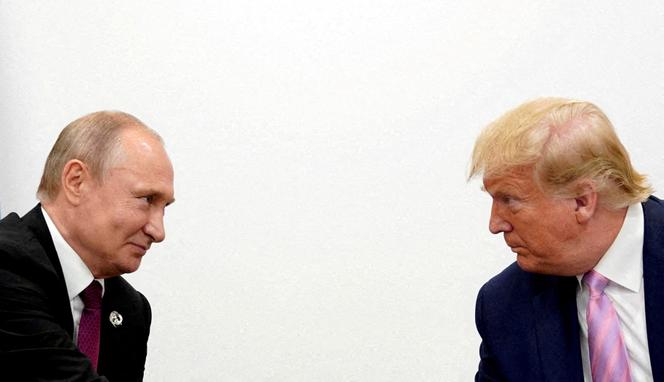
The UK and French foreign ministers on Friday, April 4, accused Russian President Vladimir Putin of dragging his feet in ceasefire talks aimed at halting Moscow's all-out invasion of Ukraine and demanded a swift response from Russia after weeks of US efforts to secure a truce.
A Russian drone attack late Thursday on Kharkiv, Ukraine's second-largest city, killed five civilians and dramatized the diplomatic insistence on a ceasefire. Emergency crews carried black body bags from a burning apartment building as onlookers wept and hugged in the dark.
Some of the 32 wounded, bloodied and in shock, limped out into the street or were carried on stretchers as flames shot from the windows of their homes.
"Now, I think it is obvious who wants peace and who wants war," Ukrainian Foreign Minister Andrii Sybiha said at a NATO meeting in Brussels, referring to the Kharkiv strike. "We must get Russia serious about peace. We must pressure Russia into peace."
Russia has effectively rejected a US proposal for a full and immediate 30-day halt in the fighting.
"Our judgment is that Putin continues to obfuscate, continues to drag his feet," UK Foreign Secretary David Lammy told reporters at NATO headquarters, standing alongside French counterpart Jean-Noël Barrot in a symbolic show of unity.
US Secretary of State Marco Rubio said that Russia's real intentions in the negotiations will become clear within weeks.
"We will know from their answers very soon whether they are serious about proceeding with real peace or whether it's a delay tactic," Rubio told reporters. "Now we've reached the stage where we need to make progress."
A Kremlin envoy who visited Washington this week for talks with Trump administration officials said Friday that further meetings would be needed to resolve outstanding issues.
Kirill Dmitriev told Russian reporters that "the dialogue will take some time, but it's proceeding positively and constructively."
He criticized what he called a "well-coordinated media campaign and attempts by various politicians to spoil Russia-US relations, distort what Russia says, and cast Russia and its leaders in a negative way."
Plans for a ground offensive
Russian forces are preparing to launch a new military offensive in the coming weeks to maximize pressure on Ukraine, and strengthen the Kremlin's negotiating position in the ceasefire talks, according to Ukrainian government and Western military analysts.
The planned multipronged ground offensive along the 1,000-kilometer (620-mile) front line comes as muddy fields dry out, which will allow tanks, armored vehicles and other heavy equipment to roll into key positions across the countryside.
The United Kingdom and France are helping to lead a multinational effort known as the "coalition of the willing" to set up a force that might police any future peace agreement in Ukraine. A senior Ukrainian official said earlier this week that between 10 and 12 countries have said they are ready to join the coalition.
Russian forces on the front line in Ukraine now number more than 600,000 troops, General Christopher Cavoli, the top US general in Europe, said. That is the highest number in the war and almost double the size of the initial invasion force, he said, and Russia is on track to replace all the tanks, armored vehicles, artillery and air defense systems it has lost so far.
In addition, Cavoli said, Russia is set to produce 250,000 artillery shells a month, allowing it to build a stockpile three times bigger than those of the US and Europe combined.